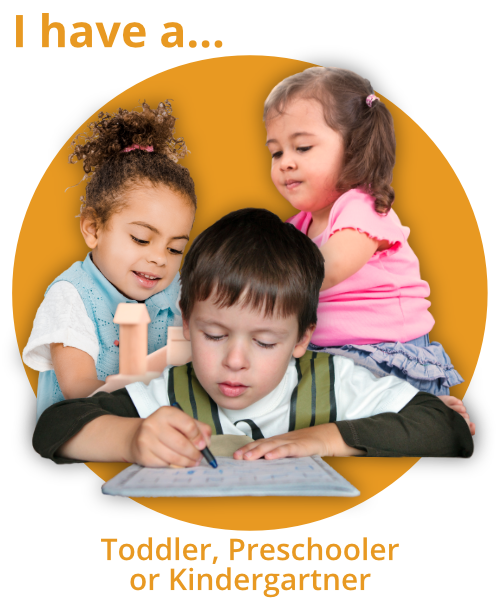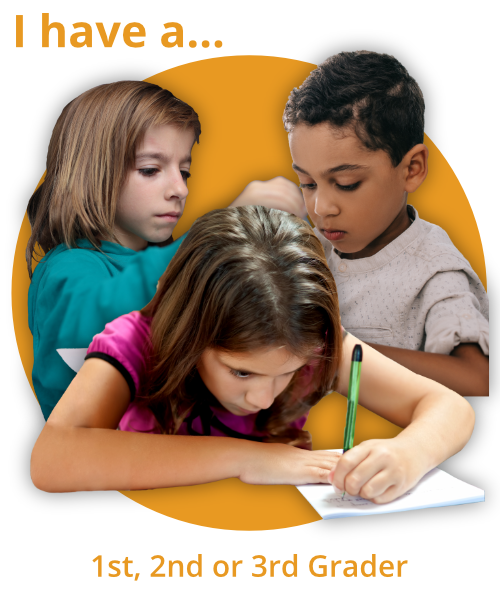Bathroom Schoolin'
I'm Aubrey Hargis, Montessorian and mom of two. As a homeschooler and as a progressive educator, I am a fan of letting children lead when it comes to their own education. I am just here along for the ride, and to offer my wisdom and experiences when necessary. Letting go is a process I'm getting better and better at the older they get...because education is a journey we take with our children, and the opportunities for learning start over every day.
Hey Sweet Friend
Welcome back to the podcast. We are going to be talking today about the bathroom. We're going to discuss potty learning a little bit for those of you with toddlers, and we'll talk about why it's important to make sure that children are still feeling independent in the bathroom area of your house as you embark on your homeschooling journey. We're not gonna be talking about teaching any academic lessons in particular in the bathroom...but we are going to be talking about why bathroom-related skills are an important part of your child's education, and how to prepare that space for success.
Meet Gwen!
Meet Gwen, Montessori mom of four, living in Leipzig, Germany. She’s an alumna of Homeschool of the Redwoods Primary AND Lower Elementary and a member of Constellation. We are featuring members like Gwen so you can get a sense of what it’s like to belong to the Montessori homeschooling community! You can read more about Gwen and her family here.
Learning in the Bathroom Starts Young
When you educate your child in the bathroom, where does it begin? In traditional parenting, we are often focused on the efficient care of a child--we’re whipping those diapers on and off and getting out of there! But in the Montessori environment, we slow everything down. When my children were very, very little, when they were babies, I would bring them into the bathroom, we would look in the mirror together, we would make faces into the mirror and inspect our reflections together. They would watch me go to the bathroom myself and sit on the toilet, urinate, and defecate, and all that good stuff. I felt like they needed to witness that because they are going to mimic what we do. Having them watch me wash my hands in the sink, the method that I use to put on the soap, how long I stay there washing, and how I use the toilet, use toilet paper and flush--those are all things that they needed to see modeled, and that they were absorbing when they were really, really little. I took my children into the bathroom while I did all of that self-care stuff myself right away.
Now I know that self-care isn't always something that you want to involve your children in. Yes, you need time for privacy as well. You don't always have to have your child in there with you all the time, but if you can allow your child to watch you doing the self-care: bring them into the shower with you when they're babies, hold them on your hip while you're washing your hands, invite them to participate in washing their own hands...all of those things are ways to invite your child into thinking about how they are going to be independent when they're a little bit older. They are absorbing and witnessing at the same time.
Sensory Exploration in the Bathtub
By the time my children were toddlers, they really wanted to get their hands messy, and they were SUPER into sensory play. So we often did it at bathtime! It’s not that they needed to be bathed constantly, and we didn't usually use soap in the bathroom when they were very little unless they were visibly dirty. The water was enough to get them clean and then give them time to enjoy the sensation of water. We did it pretty much every single day, just for fun just for the experience and the smoothness of being in the water.
They also loved to get up there and wash their hands at the sink. When they were little, I would just pick them up and be with them while they were doing it. As soon as they were stable enough to stand on a stool, I would get a little stool for them to climb upon, and then teach them how to reach for the faucet and turn it on, which is not necessarily a super easy thing at first for children. People often ask me about soap management for young handwashers, and my personal preference at this age is bar soap. It tends to be easy for them to handle. It's slippery, yes, but it's easy to put in an area where they can reach it and use it, rub it under the water and get all sudsy. I think a lot of people see the pump soap as maybe being easier or more sanitary...and maybe it is we use pump soap in our house as well now that our kids are bigger. When they were really little toddlers though, I preferred the bars. They are easier for them to access and take less manual dexterity to operate. A lot of children struggle to manipulate hand pumps while also getting the soap onto their hands...and also will struggle with wanting to pump it over and over and over and over once they are able. If you choose to use pump hand soap, you might consider diluting it so that if they are pumping frequently you aren’t wasting quite so much soap! Those are two tricks for you to think about, with your toddler in the bathroom.
Potty Learning
In Montessori, we refer to Potty Training as Potty Learning, because we are focused on the child’s journey rather than their immediate toileting success. Whatever you call it, it’s the focus on learning how to use the toilet, how to urinate inside a pot, and flush it down rather than urinating on the floor or in one's diaper. It can take some time for children to learn that. The journey starts with witnessing: watching and observing another person going through that process themselves. The process takes a lot of confidence-building, even if children are physically capable of it.
So when does it start? We usually in Montessori, when a child begins walking, we start bringing out a small potty and allowing them to sit on it and experience it. Then, we encouraging them to pee inside, sitting on it without their diaper on just to see what it's like and explore. They can feel, hear, and SEE what is happening with their bodies, and it's all about just the exploration of it. What we don't have is the expectation that they will be able to get themselves there all the time and effectively use it. It can take children a long time to learn how to use the toilet.
This is going to be a huge part of your child's education. If you have an 18-month-old to a three-and-a-half, maybe even a four-year-old, this may STILL be a part of the journey. I know a lot of parents don't like to hear that.
The reality is, children continue to have accidents for a long time in their clothes. It's very, very normal, and going to the potty has different challenges for different children. Some children are scared of the flush. Some children will be able to pee in the potty, but won't be able to poop. Some children will only use the little potty for a long long time and will be scared of that big potty. Some children will be ready to transition from the little potty on to the big potty much quicker and will be more advanced at it but won't be able to do a very good job wiping themselves and might even refuse to wipe themselves.
Little children just take time to get confidence and to feel competent at things that involve self-care. So you should treat them like educational experiences! You're going to show your child how you brush your hair, and then you're going to encourage your child even as a little one to brush their hair, even if they don't do a great job. It’s okay if you have to come back and help them later with it, you're STILL going to invite them to do all of these things themselves that have to do with self-care. That is like the main thing that goes on in the bathroom.
The Primary Child in the Bathroom
While Primary children will be more engaged in self-care, they still aren't going to be incredibly competent at all of it. They might be more inclined to take initiative to go into the bathroom on their own and TRY to take care of things themselves. You might find that they have had an accident, and they've already taken care of it, they changed out their underwear and tried to clean up all their poop that accidentally fell on the floor and made a big mess.
Still, they really did their best to clean it up independently without you…and that is cause for celebration! These things that they are practicing do eventually stick, but there are going to be a lot of messy hang-ups along the way, and your job is just to offer support until they get it.
Baths stop being about sensory play and they start to be more purposeful. The child is more interested in cleaning themselves. They may be experimenting with the properties of water, or heavily engaged in bathtime pretend play. They may be a little more interested in privacy! I used to sit right in the doorway, within eye distance, so he could have space but I could still be sure he was safe. I never trusted my children to be in the bath without me supervising until they were pretty good with the shower and water safety in those elementary years.
Privacy and Independence: The Elementary Years
In the elementary years, you should expect their children are going to want to go in there to seek privacy. They might want to take showers instead of baths. As they are in there by themselves, they need to know about the boundaries of things that are kept in the bathroom.
Always make sure whether your children are little or older to keep the medicines up high and or locked out of reach. Same with the razors, they need to know what they are for and how they are used, and they must know which things are only for adult use and are dangerous. You might have to repeat those lessons a few times.
I was kind of fussy about makeup, I don't wear a ton of makeup, but the makeup that I do have I really didn't want my children to mess with--makeup is expensive. So I made sure to designate certain lipsticks that they could play with and we bought some face paint that they could experiment with without damaging my things. I was modeling it, and so I made sure to provide some tools for them to do that exploration within a space clearly designated for them.
During the elementary years, they probably won't need the stool at the sink anymore. If you have a very short six or seven-year-old they may still need a little stepstool depending on the height of your sink and counter, but most children are ready to do without that. They may feel a little bit short, but still competent.
I used to hang a lower mirror underneath the vanity mirror in the bathroom, a little mirror that's velcroed to the wall. That remained useful when they were in elementary because they're still short enough that they may struggle to see themselves fully in the vanity mirror.
Final Thoughts
Overall, the bathroom is a great place to learn about self-care. It's not necessarily the place where we taught a lot of very specific academic lessons, but preparing it and getting comfortable in it is key! Our children need to see us functioning in it and modeling in it. They need to know how to maintain the things which belong there: how to fold the towels and put them away. They need to know all those practical things that go on and go in the bathroom.
That is where we placed our Montessori emphasis. So if your bathroom is still an adult bathroom, and you have a little one and you haven't made any changes yet for your child, ask yourself:
Can my child reach the sink?
Can my child reach the toilet?
Can they shower if they want, comfortably and safely? (We actually bought one of those hand handheld showerheads so that they could hold the showerhead and control the water flow.)
What needs to happen so they can use the bathroom independently and safely?
Let’s Talk About... the Outdoor Environment!
I will see you next time when we'll be talking about taking Montessori outdoors! That will wrap up this little series where we've been talking all about all the ways you can prepare your home to homeschool. If you've missed the last few episodes, I encourage you to go back!
We started with your own little schoolhouse, and then we talked about the kitchen and kitchen schooling. We went into our dining room and did a little deep dive there. We talked about the living room or playroom and we talked about the bedroom last time. Next week, we will go outside and think about how we can take Montessori outside: whether you have a backyard or whether you're visiting your local parks, or whether you're just standing on your front porch step. Have a beautiful day!


